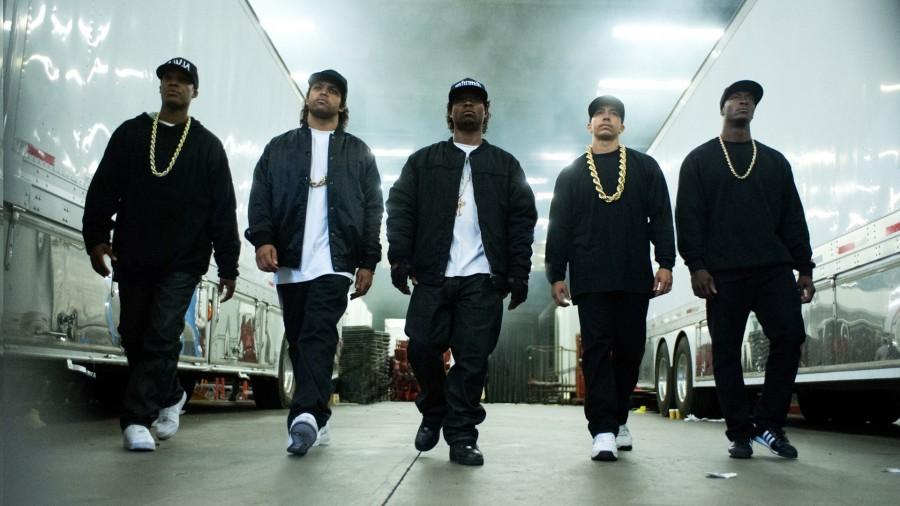Straight Outta Compton: Amazing Biopic or Straight Outta the Trash?
September 30, 2015
The new biopic Straight Outta Compton, directed by F. Gary Gray, follows the rise and fall of the famous rap group N.W.A. in the mid- to late-1980s and into the 1990s. With themes that are controversial even today, this movie had the potential to be one of the best of the year, but did it live up to its potential? Did it do justice to the powerful music of such an influential group?
First, the acting in this movie is absolutely stellar. With Ice Cube’s son Oshea Jackson, Jr., playing his father, Corey Hawkins playing the one and only Dr. Dre, and Jason Mitchell taking over the crucial role of Eazy-E, viewers almost feel like they really are the infamous rappers whom they play.
Since I am not a big fan of the type of music associated with these guys, what surprised me was that when I left the theater, I found myself wanting to hear that music. The movie really makes viewers feel for the characters even though they aren’t necessarily “good people.”
The movie has, on the other hand, come under criticism for leaving out Dr. Dre’s violence against women. With people calling it misogynistic, several of Dr. Dre’s victims have stepped forward to express their concern. Michelle Touissant said in an interview with VladTV, “If they start from where they start from, I was just a quiet girlfriend who got beat up and told to sit down and shut up.”
Dr. Dre apologized in an interview, saying, “Twenty-five years ago I was a young man drinking too much and in over my head with no real structure in my life. However, none of this is an excuse for what I did. I’ve been married for 19 years and every day I’m working to be a better man for my family, seeking guidance along the way. I’m doing everything I can so I never resemble that man again. I apologize to the women I’ve hurt. I deeply regret what I did and know that it has forever impacted all of our lives.”
The women he harmed responded with a mixture of outrage and acceptance. One, Dee Barnes, said, “The hypocrisy of it all is appalling. This is bigger than me and bigger than hip-hop. This is about respect and awareness.”
But a movie like this, like many biopics, can’t be without controversy. For example, in Selma, the relationship between Martin Luther King, Jr., and the president is “revised.”
Leaving out the dark history of Dr. Dre could be attributed to the fact that both he and Ice Cube are executive producers of the movie, but the fact is that in a biopic, there is so much to tell in only two or three hours that sometimes information gets left out. I’m not saying that Dr. Dre’s domestic violence is a small issue and didn’t deserve to be included, but it’s not that unusual for something to be left out.
One of the things that made this movie so amazing, apart from the acting and the story, is the fact that these guys worked to shed light on the problems of racism and police brutality. And if we look around, we see these things are still happening. Have they gotten better? Maybe, but not by much.
This is easily one of the best movies I’ve seen in a long time. It was entertaining and I would recommend it to anyone who is looking for an interesting movie about how we operate as a society and the hypocrisy of how we look at the issues. I would call this movie a must-see.


